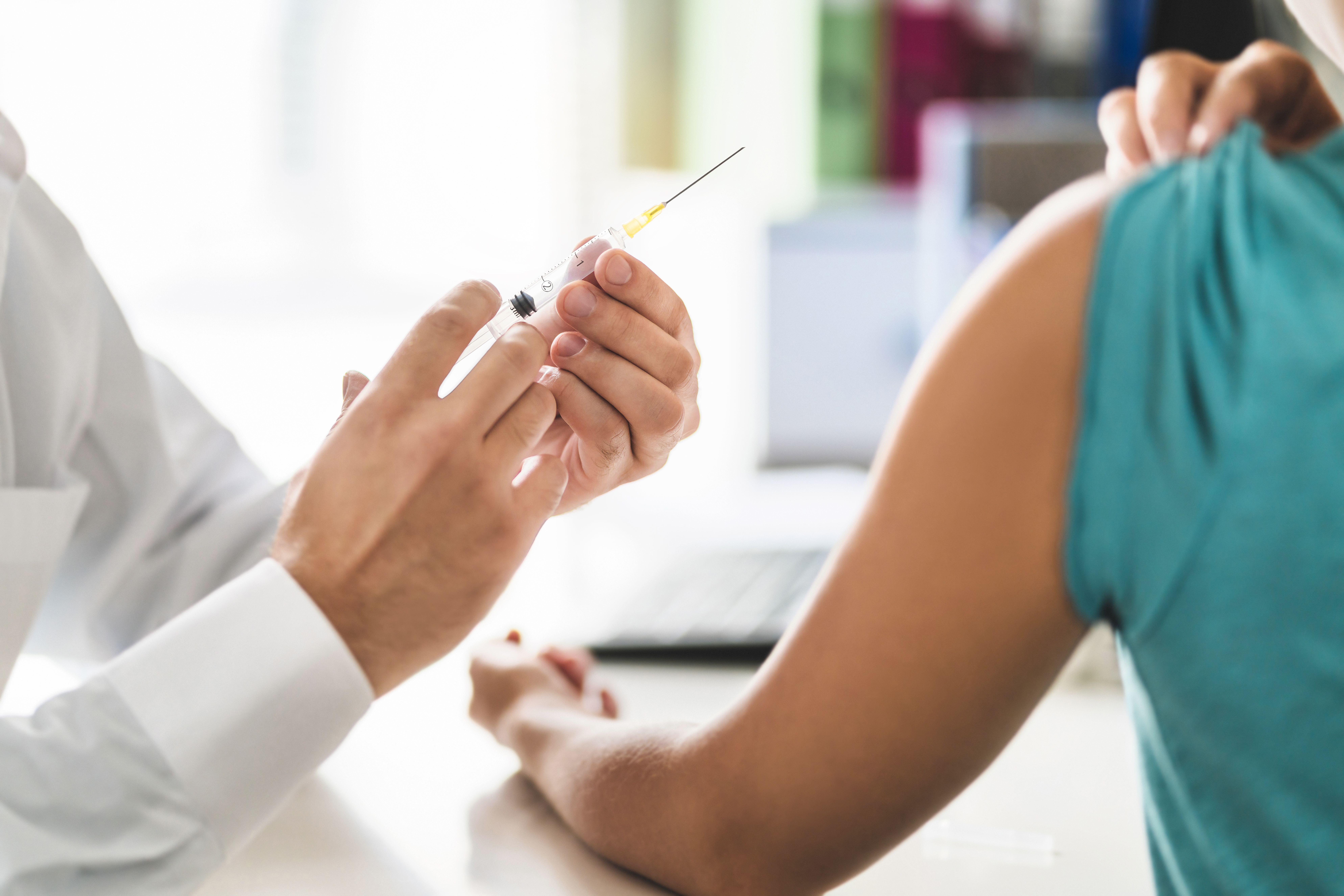
A world-first gonorrhoea vaccine programme will be launched in England to address record-high levels of the sexually transmitted infection, which reached over 85,000 cases in 2023 – the highest since records began in 1918.
The vaccine, 4CMenB, is an existing jab already used against meningococcal B disease, a serious bacterial infection that can cause meningitis and sepsis.
NHS officials have confirmed that gay and bisexual men with a recent history of multiple sexual partners or a bacterial STI will be eligible under the new programme. Individuals will be contacted in the coming weeks and offered the jab from August 1 through local sexual health services.

During these appointments, patients may also be offered vaccines for mpox, HPV, and hepatitis A and B.
Commenting on this announcement, professor Matt Phillips, president of the British Association for Sexual Health and HIV (BASHH), said: “This is excellent news and a landmark moment for sexual health in England.
“A new gonorrhoea vaccination programme – alongside continued rollout of mpox vaccination – forms a vital part of our efforts to address the significant inequalities we are seeing in sexual health outcomes.”
The vaccine roll-out is great news for prevention, but what about treatment for people who already have it? We spoke to some experts who have outlined some of the key signs of gonorrhoea to look out for, and some treatment options too.
What is gonorrhoea?
“Gonorrhoea is a sexually transmitted infection which is caused by a bacteria called Neisseria gonorrhoeae,” says Miss Shazia Malik, consultant obstetrician and gynaecologist at The Portland Hospital, part of HCA Healthcare UK. “It’s transmitted through unprotected intercourse, which doesn’t just have to be vaginal, it can also be transmitted through oral or anal sex.”
What are the biggest misconceptions about gonorrhoea?
“Some people often confuse gonorrhoea with chlamydia,” highlights Phillips. “Also, people sometimes think that you always know if you’ve got gonorrhoea, because you must get symptoms, but actually you can have gonorrhoea with no symptoms.
“Some people also believe that it can be ignored, but it always needs treating.”
What are some common symptoms to look out for?

“The symptoms can be very variable,” notes Malik. “They can be nothing, they can be a discharge from the penis or vagina, or pain in the testicles.
“Women can also experience pelvic pain or a burning sensation on passing urine, or bleeding in between periods or after sex. So, there’s a whole host of symptoms, and you can have one, more than one, or none.”
Are there any complications with gonorrhoea?
Untreated STIs, or severe STIs that have even been treated, can have effects that last for many years.
“In women, untreated STIs can not only affect your quality of life in terms of pain, discharge and abnormal bleeding, but they can harm your pelvic organs,” warns Malik. “You could be admitted with acute pelvic inflammatory disease and sepsis. And if you’re of reproductive age, because it can damage your fallopian tubes and the rest of your pelvic anatomy, it can affect your fertility.”
When should you seek medical advice about this?

“As soon as you think you might have gonorrhoea, you should get medical advice. So, for example, you might think of it because a partner has said they’ve got it,” says Phillips. “Always contact local clinics and get tested and treated if you believe you are experiencing symptoms consistent with gonorrhoea.”
What does the test process involve?
During the appointment the doctor or nurse will ask about your symptoms and sexual partners, and they may need to check your penis or vagina, according to the NHS website.
The website also states that the professional may use a swab (like a large cotton bud) to take a sample of fluid from your penis, vagina or anus. You may be able to do the swab yourself.
A pee sample might also be requested and you may also have to do tests for other sexually transmitted infections at the same time.
Can it be treated?

“The only real way to deal with gonorrhoea is with antibiotics,” says Phillips. “The standard one in the UK is an injection that goes into the buttock or the thigh, just a one off, and that will deal with uncomplicated gonorrhoea quite quickly.
“However, if someone has allergies to that, other treatments can be discussed that might include injections or tablets. But it’s really important to take the right antibiotic because there are resistant strains of gonorrhoea in the UK.”
Can it be prevented?
“Condoms are effective at preventing people transmitting gonorrhoea to each other, so a well-fitted condom is a great way at protecting yourself,” says Phillips. “And if someone contacts you saying that they’ve had gonorrhoea and you’ve had sex with them, get screened as soon as possible.”
The NHS website also recommends getting tested once a year, or if you have a new sexual partner.
Teacher paralysed by brain bleed travels overseas after ‘nightmare’ NHS treatment
Heart health in the UK is declining rapidly in ‘worrying trend’. Here’s why
Scientist reveals which is more hygienic – showering in the morning or at night
Here’s why you procrastinate – and what you can do about it
Eight things you should be doing to protect the health of your heart







